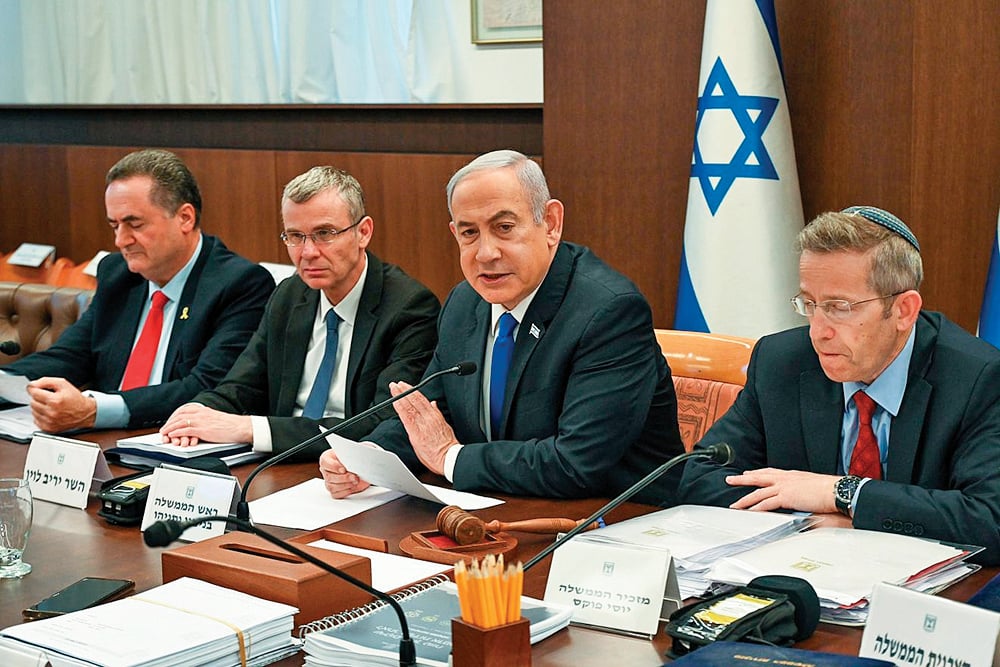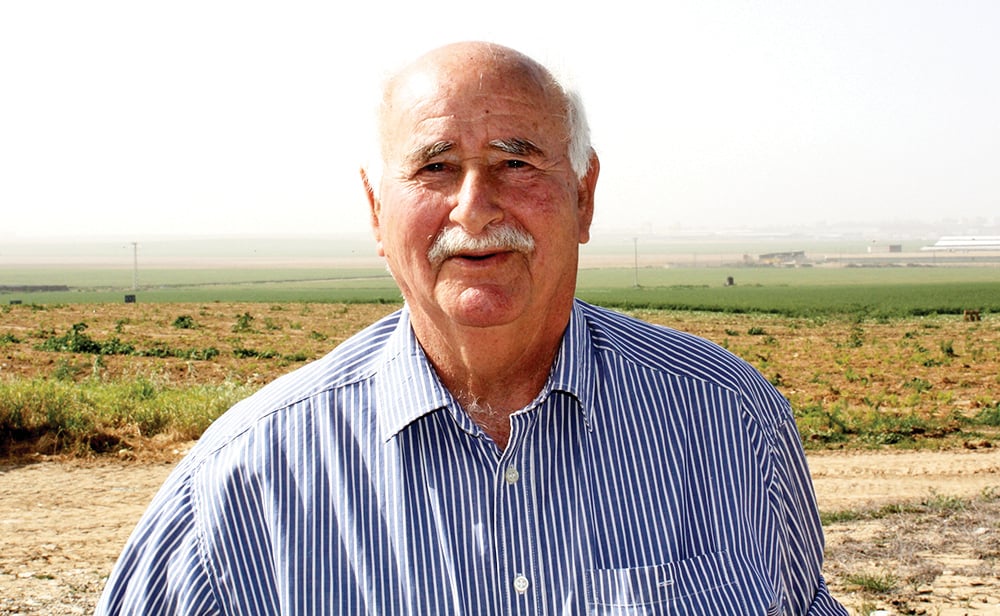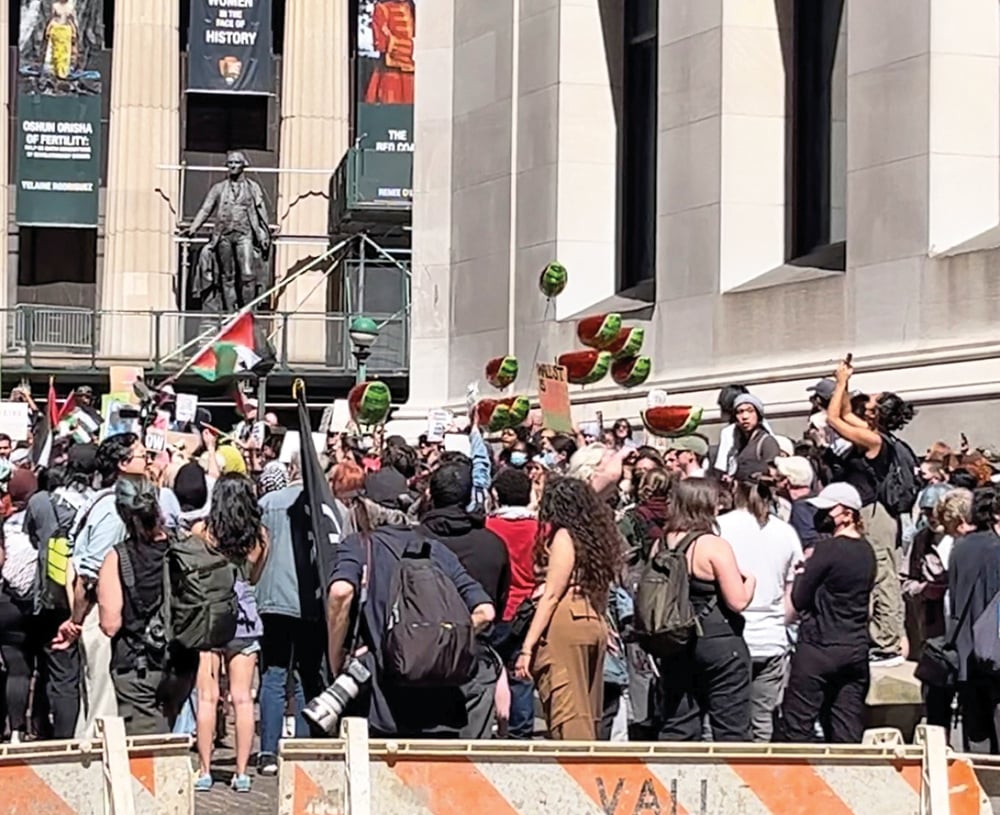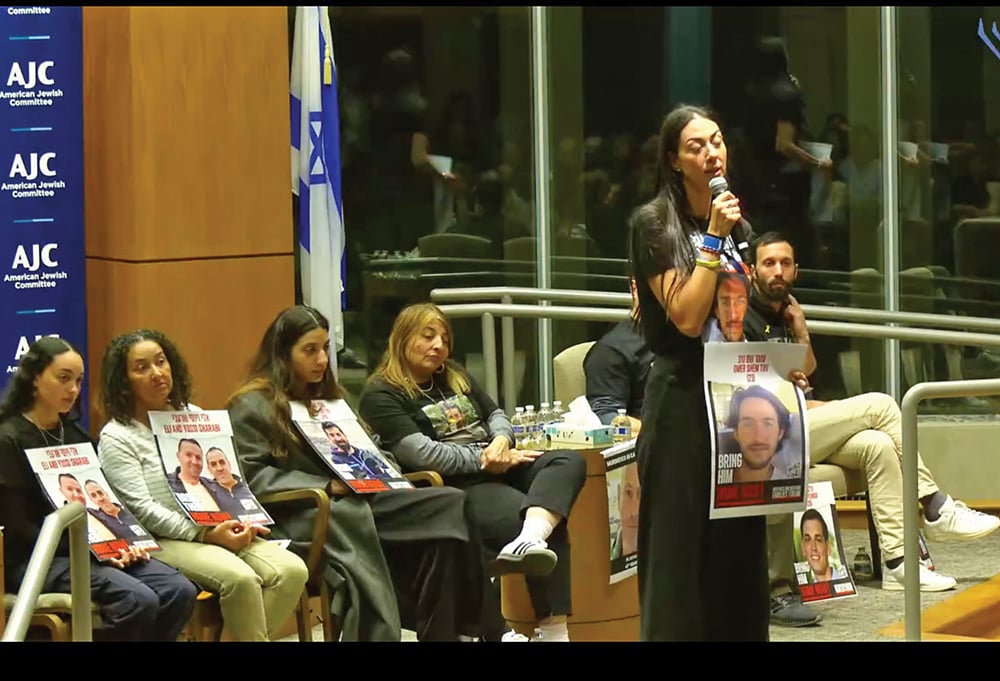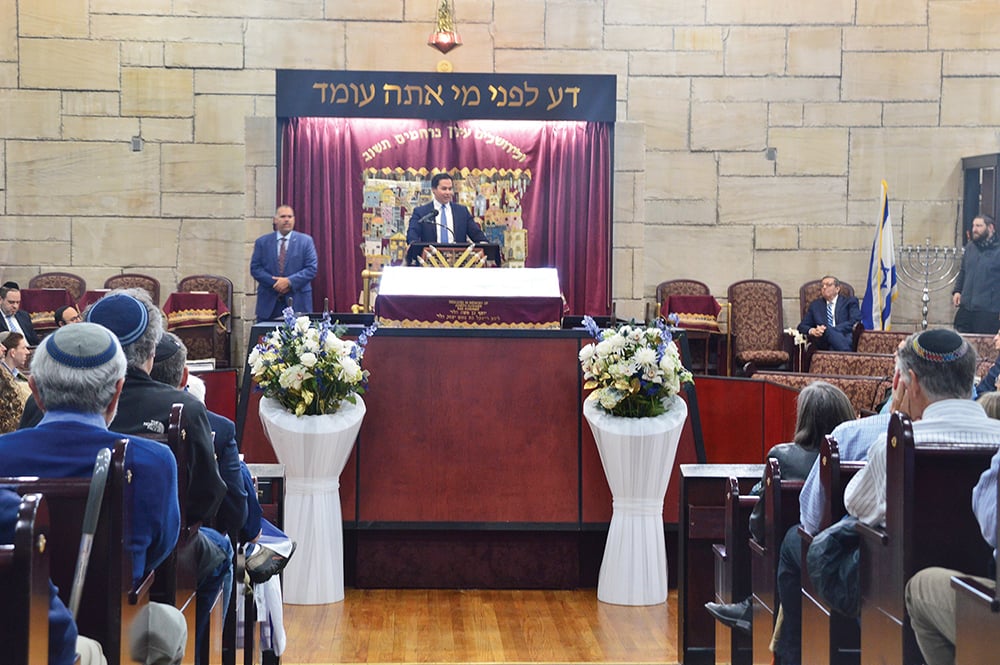
Just hours after Iran launched hundreds of rockets at Israel, Knesset Member Dan Illouz spoke in West Orange about the attack, and about the challenges Israel is facing on six fronts: Gaza, Lebanon, Iraq, Syria, the Houthis in Yemen, and Iran itself.
“Last night, the masks were removed,” he said on April 14 from the podium at Congregation AABJ&D. “Instead of attacking us through proxies, [Iran] attacked us directly.
“What we saw yesterday was Iran flexing its muscles,” but Israel showed those muscles aren’t “all that great,” given the damage was minor. While Iran tried to show how strong it is, Illouz said, Israel showed it knows how to defend itself and protect its people.
He added that an international coalition also worked to protect the Jewish state, though he said he could not name all of the countries involved—particularly the Arab countries, though he did mention Jordan helping to stop the Iranian offensive. It is a “strategic achievement” thanks to Iran’s “irresponsible actions” that brought this coalition together.
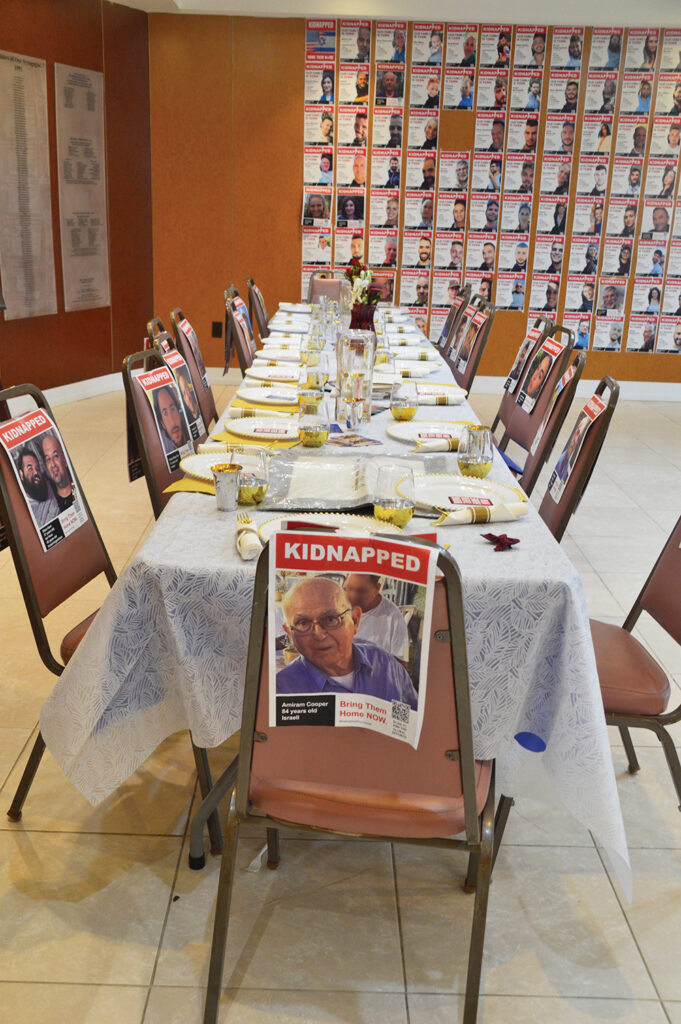
Illouz praised the efforts by the United States and other partners who helped bring down the Iranian drones and rockets before they reached Israel. However, he was disappointed by the message from Washington just a short while later in which the government refused to participate in an offensive against Iran. He said he found that statement “troubling” and that it “sends the wrong message.”
Despite the limited damage from the Iranian attack, as the intent was to “cause major damage,” Illouz said that Israel needs to respond. “It does not need to be immediate, but at a time [we] choose,” he said, noting that October 7 showed that Israel cannot just rely on defense.
The world, including Islamic terrorists and opponents of democracy, are watching, and they cannot be left with the notion that they can attack and there will be no repercussions.
After the Holocaust, when millions of Jews were killed, people said, “Never again.” October 7 was the worst attack and massacre of Jews since the Holocaust, Illouz said. “The question now in front of us is: When we said, ‘Never again,’ did we mean it or was it just a slogan?
“That’s what’s on the line for us,” Illouz continued. “We understand that it’s important to be alive than popular … that it’s more important for us to survive than be liked.”
Illouz, who heads the Public Diplomacy Caucus in the Knesset, said that there are two potential paths for Israel—one where Hamas and Iran are emboldened and one in which the Abraham Accords expand and flourish. Countries signed on to the Accords, he noted, are dependent on Israel defeating Hamas in Gaza. Illouz explained there are countries that count the Muslim Brotherhood and Iran as their enemies and “want us to get the job done.”
“People make peace with strong countries,” said Illouz. “People make alliances with strong countries.”
A native of Canada, Illouz attended McGill University and Hebrew University. He has been visiting the United States and speaking to various groups, including students at the University of Pennsylvania and Columbia University. A member of the Likud party, he spoke at AABJ&D for more than an hour, and fielded questions on politics, security, Lebanon and antisemitism, which, at one point, he referred to a being “too polite a word” for just plain Jew-hatred.
He also expressed concern that the plight of the hostages still being held in Gaza hasn’t been more of a priority over the last few weeks for the international community.
AABJ&D member Mark Levenson, who is vice president of the American Zionist Movement, organized the event and told the crowd how important it is for the Jewish community to make themselves heard by showing up to programs like this one and by writing letters to Congress and other elected officials.
“You can be a soldier for Israel in many ways,” Levenson said, noting that hasbara efforts in America “are needed every day. We need to defeat the enemies’ [actions] on this side of the ocean.”
Security at the April 14 program was particularly tight, as there had been some suggestions that anti-Israel protesters might try to picket the event. They didn’t show. Instead, attendees were greeted by Israeli and American flags waving and a truck blasting out upbeat Hebrew and Jewish songs.
As for Illouz, he left participants with a hopeful message.
“These are tough times. October 7 was incredibly tough. Yesterday was a tough day, but less so. We have a country, a strong country, an amazing army. We will win this war. We will continue to grow. We will see better days ahead.”
Faygie Holt is an award-winning journalist whose articles have been published worldwide and translated into several different languages. She is also the author of two middle-grade book series for Jewish children, “The Achdus Club” and “Layla’s Diaries,” both available from Menucha Publishers. A third series is set to be released later this year. Learn more at Faygieholt.com.



